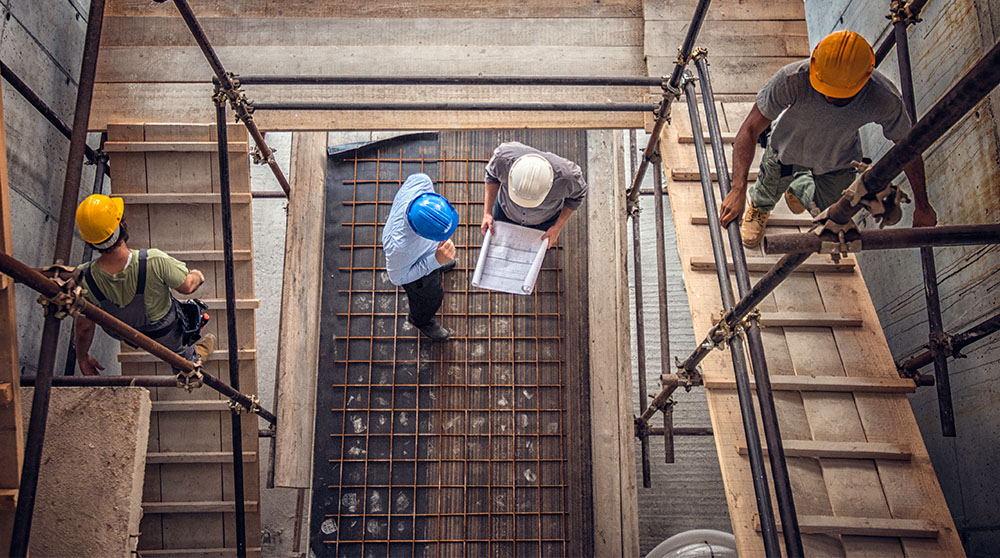According to the Occupational Safety and Health Administration (OSHA), caught-in or -between accidents is one of the Fatal Four risks on a construction site. They can happen “during cave-ins and other hazards of excavation work, when body parts are pulled into unguarded machinery, when a worker stands within the swing radius of cranes and other equipment, or when someone is caught between equipment and a fixed object.” Because the consequences of caught-in or -between accidents can be deadly, taking preventive action is critical.
Contractors and team members all play a role in prevention. Reduce the risk of caught-in or -between hazards with these nine tips.
- Add lighting, ventilation, and reinforcements. One of the top ways to prevent caught-in or -between accidents is to create a safe workspace. This includes adding proper lighting to the jobsite, especially during early morning or evening shifts. Working ventilation is also necessary to stop suffocation, explosions from fume buildup, or toxic vapor inhalation. When excavating or digging, add ample support to secure your surroundings.
- Encourage everyone to be vigilant. Everyone on the jobsite should promote safe surroundings by checking for hazards like unstable structures, unguarded machinery, and materials that are stored unsafely. If anyone sees something dangerous, they should say something and do something.
- Add clear signage around hazards. If machinery is unguarded, trenches or excavation sites are open or unsafe, or large cranes are being used, add markings around these regions. Clear signage is immensely effective at reducing injury.
- Train the team extensively. Proper training is key to stopping caught-in or -between accidents. All workers should be trained in avoiding risks and responding to emergency situations. Create a protocol and get everyone up to speed on how to react in these instances. For instructor-led OSHA training materials, learn more here.
- Enforce PPE. As with all of OSHA’s Fatal Four risks, proper personal protective equipment (PPE) can save lives. Helmets, vests, sturdy boots, gloves, goggles, hard hats, harnesses, and other fall protection gear are especially helpful in caught-in or -between prevention.
- Regulate equipment use. Ensure only trained, credentialed workers are using heavy machinery and power tools. Regularly inspect items on the jobsite and check that they’re being used according to safety standards and protocols. Workers should also be aware of the dangers of improper use, such as standing too close to moving machinery or using tools without proper guards or shields.
- Communicate clearly. Does your team know who to contact in case of an emergency? Are there clear communication modes between teams? Create a clear chain of command and make workers aware of their roles and responsibilities.
- Create a culture of accountability. A strong culture of health and safety can prevent caught-in or -between hazards. Employers should prioritize the safety of their workers over productivity and profits. This means investing in necessary safety resources and tools. Workers should also be encouraged to report any unsafe conditions or incidents, and there should be a system in place to investigate and address them promptly.
- Call in a safety services expert. What if you could stop hazards before they arise? With the help of a safety services expert, it’s possible. Some insurers provide this service to commercial customers as a value-added benefit to help identify areas of risk and create actionable solutions to prevent injury and loss. To learn more about safety services, visit fmins.com/business/safety-services/.
Preventing one of OSHA’s Fatal Four hazards of being caught-in or -between objects requires a proactive approach, combining awareness, education, and a commitment to maintaining safe work practices. While you’re on the topic of safety, learn how to prevent the other Fatal Four risks: falls, electrocution, and struck-by accidents. Then, talk to a local, independent agent to review your business policy and ensure you have the protection you need.

